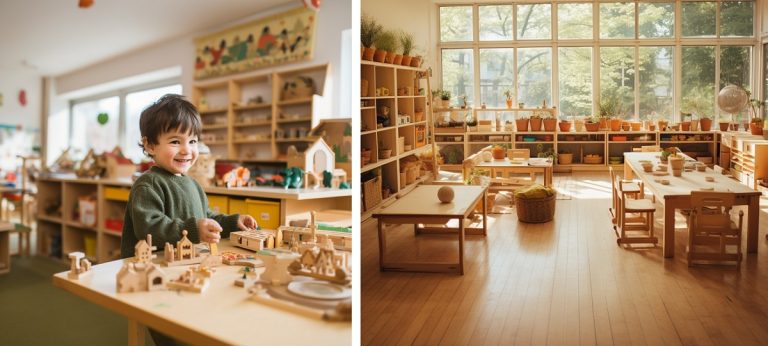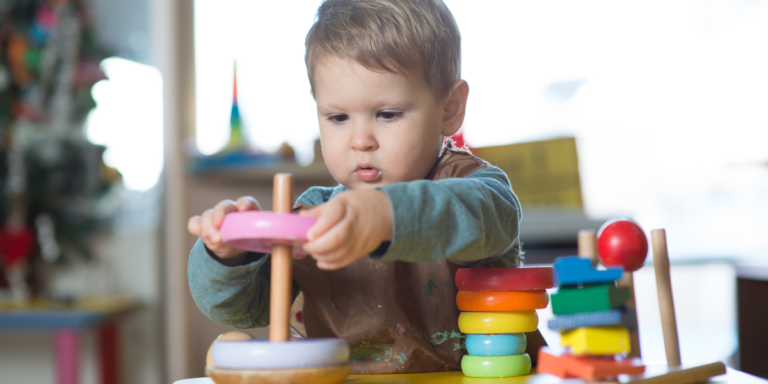What Is A Montessori School?
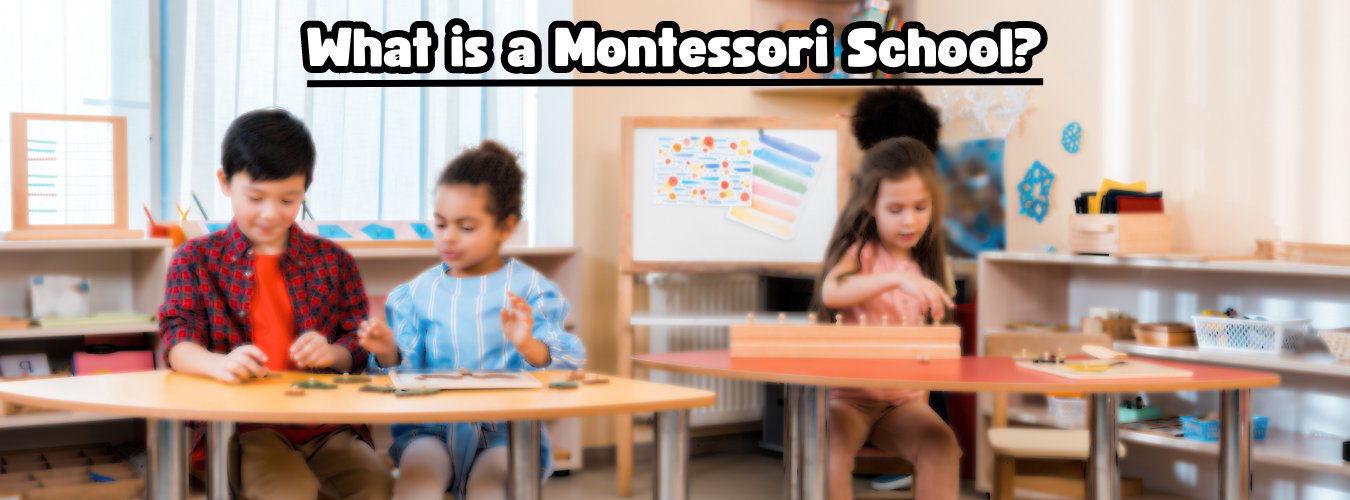
Early childhood education can be a very difficult decision for parents. There are plenty of different teaching philosophies, curriculums, and schools. One educational approach that stands out is the Montessori method. But what is a Montessori school? If you’ve ever wondered what a Montessori School is or are curious about how it could benefit your child’s learning, this blog post is designed to provide some insights. We’ll delve into what sets Montessori education apart, the cost of Montessori schools, the design of a typical Montessori school, and the pros and cons associated with this unique learning model.
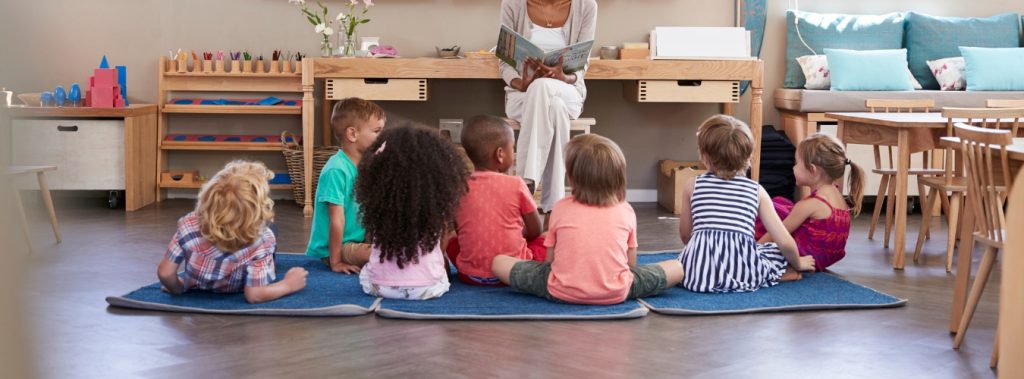
Montessori School – The Complete Overview
We will go through everything you need to know about Montessori schools for your kids. If you keep scrolling, we answer some of the most popular questions that parents have.
Understanding Montessori Education: The Philosophy
A Montessori school is a unique educational environment that adopts the philosophy developed by Dr. Maria Montessori. It’s an approach where the focus is on child-centered learning, promoting independence, and respect for a child’s natural psychological, physical, and social development.
The Classroom Experience in Montessori Schools
As you step into an early-grade classroom at a Montessori school, you’ll likely see children of varying ages freely exploring a range of activities. Unlike traditional classrooms where a structured curriculum guides every student, a Montessori classroom encourages children to concentrate on activities that stimulate their curiosity. This flexibility recognizes that children have different interests and learning paces.
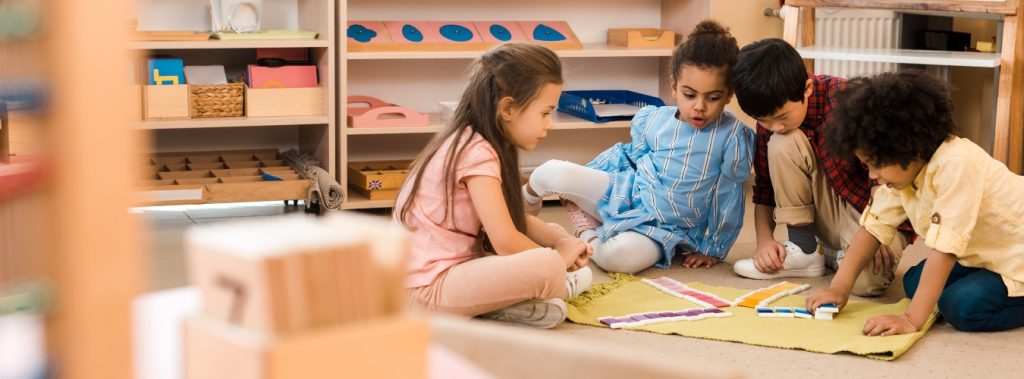
The Montessori Legacy: Dr. Maria Montessori
Montessori education is an embodiment of the vision of Maria Montessori, Italy’s first female physician. Inspired by her work at a psychiatric clinic, Maria Montessori cultivated an education system that valued giving children control over their learning. This successful, child-centered teaching methodology led to the establishment of over 3,000 Montessori schools in the U.S alone.
The Role of Teachers in a Montessori School: Guides, Not Instructors
Teachers in Montessori schools play a somewhat different role compared to their counterparts in traditional classrooms. Rather than act as instructors, they serve as guides and observers. They carefully observe each child’s behavior, interests, and abilities, subsequently providing materials and activities that align with these attributes.
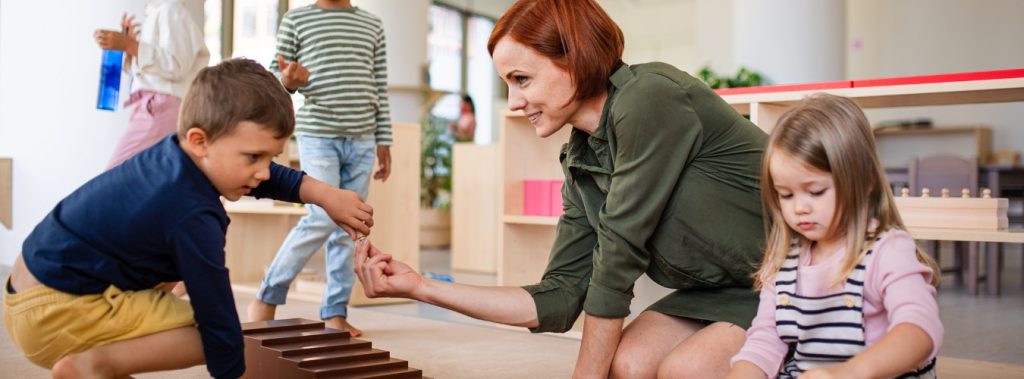
Empowerment through Independence: The Montessori Method
The Montessori method allows children to work through problems independently, bolstering their problem-solving skills and self-reliance. The classroom is designed to allow children to make their own decisions and to thrive. By letting children work through problems on their own, with each other, and with the guidance of their teachers, it can teach problem-solving skills. In addition, kids can learn to work on problems on their own.

The Design of a Montessori School: Built for Exploration
Montessori schools are designed to foster exploration and independent learning. A typical day at such a school includes a mix of individual and group activities, self-chosen work, outdoor play, and classroom responsibilities. The focus remains on hands-on, practical activities and independent learning. The goal is to help children learn at their own pace and in their own way.
Hands-on Learning in Montessori Classrooms
The classrooms are set up to encourage learning through doing. The children learn reading and math through concrete, hands-on learning materials. For example, they learn to count and understand mathematical operations using beads, rods, and other manipulative materials. This approach allows them to understand these concepts through physical manipulation, which is often more effective than purely theoretical teaching methods.

Montessori Schools Pros and Cons: Is it Right for Your Child?
There are several advantages associated with Montessori education. For starters, the curriculum transitions from concrete to abstract, making it easier for children to grasp complex concepts. Children have ownership in the classroom, encouraging them to solve problems actively. The student-led philosophy fosters an environment where students who need help are quickly recognized.
However, like any other system, Montessori education also has its downsides. Not all children can access this type of education due to the high number of private Montessori schools that charge tuition. Furthermore, the Montessori system may not be a good fit for every child, especially those who thrive in a highly structured environment.
How Much do Montessori Schools Cost?
The cost can vary depending on the school. For a school year, Montessori schools will generally cost parents between $750/month to $3,000/month depending on the location, the hours, and the age of the student. Montessori schools will charge tuition, which can be as low as $7,000 per school year and as high as $40,000 per school year.
Montessori schools, particularly private ones, are much more expensive than traditional public schools. The cost can vary widely based on the school’s location, the age of the student, and whether the school is public or private. It’s important for parents to research and understand these costs to make informed decisions. Some parents opt for Montessori schools instead of a traditional daycare facility.
FAQs for Montessori Schools
What is the concept of Montessori school?
The concept of a Montessori school is based on a child-centered learning philosophy developed by Dr. Maria Montessori, which promotes independence and respects the natural psychological, physical, and social development of a child.
What is the difference between a Montessori school and a regular school?
The main difference between a Montessori school and a regular school is the approach to education; Montessori schools focus on individual, child-led learning and hands-on experiences, while regular schools typically follow a more structured, teacher-led curriculum.
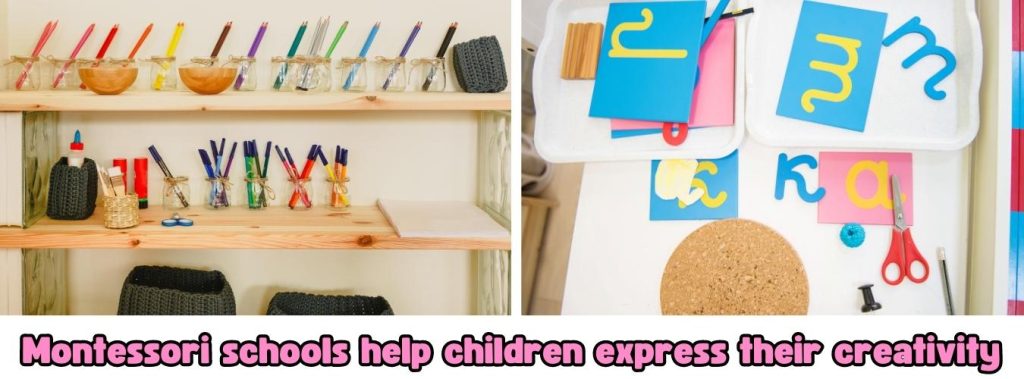
What type of child thrives in Montessori schools?
Children who are curious, self-motivated, and enjoy learning through exploration and hands-on activities often thrive in Montessori schools.
Why choose a Montessori school?
Parents might choose a Montessori school for its child-centered approach to education, which nurtures a child’s natural curiosity, promotes independence, and respects individual learning pace and interests.
Do Montessori students do better?
While individual results can vary, studies have shown that Montessori students often perform well academically, are more socially and emotionally mature, and have a positive attitude towards learning.
Why are Montessori schools so expensive?
Montessori schools can be more expensive due to factors like specialized learning materials, lower student-to-teacher ratios, and the additional training required for Montessori-certified teachers.
Are Montessori schools worth the cost?
Whether a Montessori school is worth the cost depends on the individual child and family. Many parents find the benefits of the unique, child-centered Montessori approach to be a worthwhile investment in their child’s education and development.
Is Montessori religious based?
No, the Montessori method is not based on any religious practice or belief. It’s an educational approach developed by Dr. Maria Montessori and focuses on child-centered learning.
Is Montessori good for ADHD?
Montessori can be beneficial for children with ADHD due to its focus on individualized learning and flexibility, which can accommodate the different learning styles and paces of these students.
What are the criticisms of Montessori schools?
Some criticisms of Montessori schools include their lack of structure, which might not suit every child, their higher cost, and the potential difficulty in transitioning to traditional schools due to different teaching methods.
Conclusion
In summary, a Montessori school is a nurturing environment that respects children’s individuality and encourages their natural desire to learn. Through its emphasis on hands-on learning, exploration, and independence, the Montessori method aims to foster a lifelong love of learning and the skills necessary for success in a changing world. While it may not be the perfect fit for every child, many families have found Montessori schools to be a rewarding and beneficial educational choice for their children.

